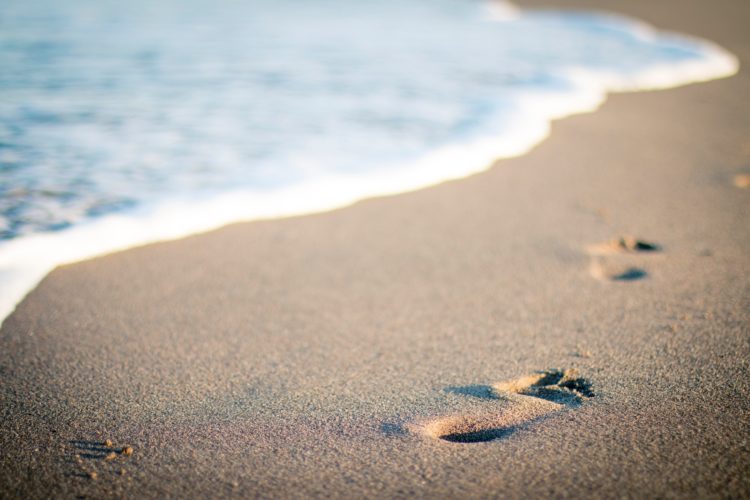Men-of-War Plague South Florida Beaches

Palm Beach County’s beaches flew purple flags on Tuesday to warn beachgoers of the presence of dangerous marine life—in this case, stinging pests known as Portuguese men-of-war, as first reported by the Palm Beach Daily News.
Portuguese men-of-war get their name from the battleship-shaped balloon that keeps them afloat. The creatures freckled the shore from Boca Raton to Jupiter following days of easterly winds that pushed the men-of-war onto the beach.
Although men-of-war are a common occurrence during winter months, some beachgoers were unfamiliar with the creatures, which range in size from that of a fist to that of a football.
“We knew enough to stay away from then,” said Nicole Boltiansky, a Toronto resident who saw men-of-war for the first time Tuesday during a visit to Juno Beach. “We assumed they were jellyfish.”
Men-of-war are often confused with jellyfish, but are in fact siphonophores, according to the National Oceanic and Atmospheric Administration. A siphonophore is composed of different organisms with various functions all working together as one.
Men-of-War Plague South Florida Beaches
Serious reactions to men-of-war stings are rare. However, tentacles complete with coiled, barbed tubes can stretch as far as 100 feet from balloon. If these tentacles get wrapped around person, they can stick to the skin, causing red welts, swollen lymph nodes, and nausea.
“People come up and they still have a purple blob stuck to their arm and you got to get that off,” said Craig Pollock, supervisor of lifeguards for the town of Palm Beach.
If stung, the Florida Poison Control Center recommends washing the affected area with vinegar, sea water, or alcohol. Lifeguards also suggested hot and cold compresses and even meat tenderizer. However, Pollock said that unfortunately there’s “no magic pill to make the pain stop.”
“You kind of just have to deal with the effects,” he said.
Related >>> Midtown Beach Erosion Solution Delayed
Palm Beach County ocean rescue supervisor Julia Lea, based in Juno Beach, said that there have been no severe stings reported in the past week in north county. This may be because rough waves have kept most leisurely swimmers on the beach.
Tentacles can still cause stings after being broken apart in rough surf or even after the man-of-war washes ashore and dies.
The cold front that moved through South Florida Wednesday turned the winds westerly, helping to blow the men of war out to sea.
“As soon as it turns east again, they’ll be back,” Leo said.






3 Comments
[…] Related >>> Men of War Plague South Florida Beaches […]
[…] Related >>> Men of War Plague South Florida Beaches […]
4/7/2019 Swimming at lake worth Beach all of a sudden felt heat and severe pain in my upper thigh went to lifeguard said it was a Man O War sting….. darn that hurt after about two hours it seemed to go away.
Ill never forget that